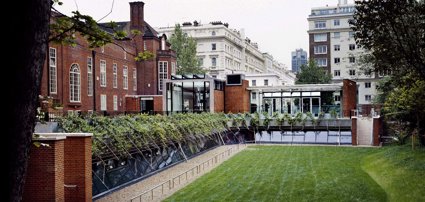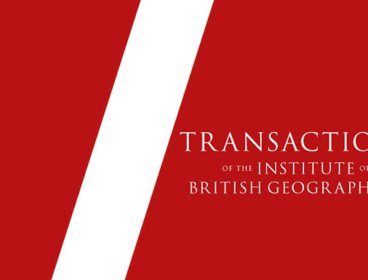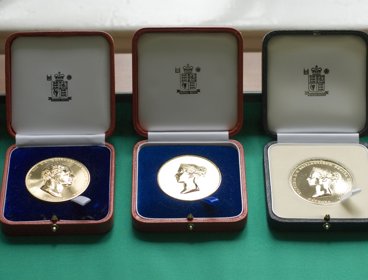Saturday, 1 November 2025
Today is all about igniting your passion for exploration with a series of main stage talks from seasoned expeditioners and field professionals sharing their stories and expertise. After lunch, dive deeper into the practical side of expeditions with focused workshops, and put your plans to the test in our pitching session. As the day winds down, relax and network at the Explorers’ Bar before the evening film screening.
| Time | Event |
|---|---|
| 10.00am | Welcome |
| 10.10am | Opening address |
| 10.20am-11.15am | Main stage talks
A range of inspiring stories from past Explore Weekend attendees, illuminating the diversity of geographical exploration in practice. View confirmed speakers.
|
| 11.15am | Break and refreshments
Will you meet a future expedition partner in the coffee queue?
|
| 11.45am-12.45pm | Main stage talks |
| 12.45pm | Lunch with Firepot
Network with peers and experts, and meet the exhibitors.
|
| 1.15pm | Lunchtime workshops |
| 2.15pm-3.15pm | Main stage talks |
| 3.15pm | Break and refreshments |
| 3.30pm | Expedition logistics, skills and safety workshops
A choice of subject-specific workshops in several categories. Challenging environments: mountains and trekking; polar and Arctic; desert and savannah; tropical forests Mode of transport: vehicle-supported expeditions; bicycle journeys; paddling rivers and oceans Leadership skills: team building and conflict resolution |
| 5.00pm | Pitch your plans
Get expert feedback in this Dragon's Den-style pitching session!
|
| 5.30pm-7.00pm | Film screening
An exclusive screening of Expedition Amazon in partnership with National Geographic. Watch the trailer.
|
| 6.00pm | Explorers’ Bar |
| 9.00pm | (Optional) dinner at Wagamama
A 20-minute walk away on Kensington High Street.
|
Table changed back to center alignment
| Time | Event |
|---|---|
| 10.00am | Welcome |
| 10.10am | Opening address |
| 10.20am-11.15am | Main stage talks
A range of inspiring stories from past Explore Weekend attendees, illuminating the diversity of geographical exploration in practice. View confirmed speakers.
|
| 11.15am | Break and refreshments
Will you meet a future expedition partner in the coffee queue?
|
| 11.45am-12.45pm | Main stage talks |
| 12.45pm | Lunch with Firepot
Network with peers and experts, and meet the exhibitors.
|
| 1.15pm | Lunchtime workshops |
| 2.15pm-3.15pm | Main stage talks |
| 3.15pm | Break and refreshments |
| 3.30pm | Expedition logistics, skills and safety workshops
A choice of subject-specific workshops in several categories. Challenging environments: mountains and trekking; polar and Arctic; desert and savannah; tropical forests Mode of transport: vehicle-supported expeditions; bicycle journeys; paddling rivers and oceans Leadership skills: team building and conflict resolution |
| 5.00pm | Pitch your plans
Get expert feedback in this Dragon's Den-style pitching session!
|
| 5.30pm-7.00pm | Film screening
An exclusive screening of Expedition Amazon in partnership with National Geographic. Watch the trailer.
|
| 6.00pm | Explorers’ Bar |
| 9.00pm | (Optional) dinner at Wagamama
A 20-minute walk away on Kensington High Street.
|
Sunday, 2 November 2025
The second day of the Explore Weekend is dedicated to equipping you with in-depth knowledge for your next expedition. The day kicks off with a series of specialised workshops on field research and purpose-driven travel. In the afternoon, fine-tune your plans with practical medical workshops and explore communication and storytelling techniques to share your findings with the world.
| Time | Event |
|---|---|
| 9.00am | Doors open |
| 9.30am | Opening remarks
With this year's Explore Weekend chair Paul Rose
|
| 9.45am-11.00am | Main stage talks |
| 11.00am | Break |
| 11.30am-1.00pm | Field research and purposeful travel workshops
Select one of the subject-specific workshops covering field research approaches, ethical and responsible travel, and other purpose-driven activities.
Marine science and exploration Human, medical, and social science fieldwork Biodiversity surveys and conservation Earth and environmental sciences Mapping, including the use of drones for fieldwork Responsible travel Citizen Science, for those willing to help collect important data without being a professional scientist |
| 1.00pm | Lunch |
| 2.15pm-3.15pm | Main stage talks
A series of talks running in parallel with the expedition medicine workshops.
Expedition medicine workshops These three 45-minute workshops run in parallel with main stage talks. Topics include:
Medical planning, including comprehensive kits Women’s health for all Well-being in the wild |
| 3.15pm-4.30pm | Communication and story-telling workshops
This choice of specialist sessions explores content creation and dissemination both in the field and upon return. Select one workshop from the following options:
Visual storytelling through film, video, shorts, and reels Storytelling and public speaking opportunities Planning your social media strategy Writing projects, including blogs and subscription services Creating educational resources, including podcasts and radio Creative projects: art, exhibitions, photography and more |
| 4.30pm | Your priorities tomorrow
Closing remarks with this year's Explore Weekend chair Paul Rose.
|
| 5.00pm | Event ends |
| 7.00pm | Building closes |
Table changed back to center alignment
| Time | Event |
|---|---|
| 9.00am | Doors open |
| 9.30am | Opening remarks
With this year's Explore Weekend chair Paul Rose
|
| 9.45am-11.00am | Main stage talks |
| 11.00am | Break |
| 11.30am-1.00pm | Field research and purposeful travel workshops
Select one of the subject-specific workshops covering field research approaches, ethical and responsible travel, and other purpose-driven activities.
Marine science and exploration Human, medical, and social science fieldwork Biodiversity surveys and conservation Earth and environmental sciences Mapping, including the use of drones for fieldwork Responsible travel Citizen Science, for those willing to help collect important data without being a professional scientist |
| 1.00pm | Lunch |
| 2.15pm-3.15pm | Main stage talks
A series of talks running in parallel with the expedition medicine workshops.
Expedition medicine workshops These three 45-minute workshops run in parallel with main stage talks. Topics include:
Medical planning, including comprehensive kits Women’s health for all Well-being in the wild |
| 3.15pm-4.30pm | Communication and story-telling workshops
This choice of specialist sessions explores content creation and dissemination both in the field and upon return. Select one workshop from the following options:
Visual storytelling through film, video, shorts, and reels Storytelling and public speaking opportunities Planning your social media strategy Writing projects, including blogs and subscription services Creating educational resources, including podcasts and radio Creative projects: art, exhibitions, photography and more |
| 4.30pm | Your priorities tomorrow
Closing remarks with this year's Explore Weekend chair Paul Rose.
|
| 5.00pm | Event ends |
| 7.00pm | Building closes |
Alphabetical list of university open days
| Aberdeen, University of |
|
|
|
|
|
Saturday 29 November
|
|
|
Saturday 27 September
|
|
|
Sunday 12 October Saturday 1 November Saturday 22 November |
|
|
|
|
|
Saturday 11 October
|
|
|
|
|
|
Saturday 11 October Saturday 15 November
|
|
|
Saturday 20 September Saturday 25 October
|
|
|
Saturday 25 October Saturday 29 November |
|
|
|
|
|
|
|
|
|
|
|
|
|
|
|
|
|
|
|
|
|
|
|
|
|
|
|
|
|
|
|
|
|
|
|
|
|
Saturday 27 September Saturday 25 October |
|
|
|
|
|
|
|
|
|
|
|
|
|
|
Saturday 11 October (Southend campus) |
|
|
|
|
|
|
|
|
|
|
|
|
|
|
|
|
|
|
|
|
Saturday 8 November (Moray campus) |
|
|
|
|
|
|
|
|
|
|
|
Saturday 11 October Sunday 12 October Saturday 15 November |
|
|
Saturday 11 October (Canterbury campus) Saturday 18 October (Medway campus) Saturday 15 November (Canterbury campus) |
|
|
|
|
|
Saturday 4 October
|
|
|
|
|
|
|
|
|
|
|
|
|
|
|
|
|
|
|
|
|
|
|
|
|
|
|
|
|
|
Saturday 18 October Saturday 22 November |
|
|
|
|
|
|
|
|
|
|
|
|
|
|
|
|
|
Saturday 13 September Saturday 11 October |
|
|
|
|
|
|
|
|
|
|
|
|
|
|
|
|
|
|
|
|
|
|
|
|
|
|
|
|
|
|
|
|
|
|
|
|
|
|
|
|
|
|
|
|
|
|
|
|
|
|
Saturday 18 October (Stoke-on-Trent campus) |
|
|
|
|
|
|
|
|
Saturday 4 October Saturday 1 November |
|
|
|
|
|
|
|
|
|
|
|
|
|
|
|
|
|
|
|
|
|
|
|
|
|
|
|
|
|
|
|
|
|
|
|
|
|
|
|
|
|
|
Figure 1 Passenger numbers through UK airports plunged by 75.2% from 2019 to 2020 © JC Gellidon
Specification links
AQA
Ecosystems under stress. 3.1.6.5 Marine ecosystems Human activity and its impact: Major drainage basin schemes, onshore development, desalination, pollution, tourism, fishing.
Edexcel
Area of study 2: Dynamic Places Topic 3: Globalisation 3.6 The emergence of a global culture, based on western ideas, consumption, and attitudes towards the physical environment, is one outcome of globalisation.
OCR
Topic 2.1 – Changing Spaces; Making Places. 1.a. Places are multi-faceted, shaped by shifting flows and connections which change over time.
Eduqas
Coastal Landscapes. Coastal processes are a vital context for human activity. Positive impacts of coastal processes on human activity including the growth of tourism.
Introduction
Since Prime Minister Boris Johnson said on 16 March 2020 that ‘now is the time for everyone to stop non-essential contact and travel’ the UK tourism and travel industry has dramatically altered.
-
To understand the chronology of events from 2019 to 2021 use the statements below to draw out a timeline of events.
|
17 May 2021 Air corridors are replaced by a traffic light system. UK tourists will be able to visit 12 green list countries without having to quarantine on their return
|
3 August 2020 The Treasury’s scheme ‘Eat Out to Help Out’ starts, offering a 50% discount on meals up to £10 per person
|
6 January 2021 Lockdown 3 begins (provisional end date 19 July). England enters its third national lockdown |
|
15 February 2021 Hotel quarantine for visitors travelling to the UK begins (for 33-high risk countries) |
8 March 2021 Schools are reopened |
23 March 2020 Lockdown 1 begins. The PM announces the first lockdown across the entire UK, ordering people to ‘stay at home’
|
|
5 November 2020 Lockdown 2 begins in England, ending 2 December (although a new Tier 4 is applied to London and the SE)
|
14 October 2020 A new 3 level ‘tiering system’ starts in England |
4 July 2020 The first ‘local lockdown’ is trialled and applied to the city of Leicester |
|
10 July 2020 UK ‘air corridors’ are created (the Canary Islands are removed in November, cancelling many winter sun holidays)
|
24 June 2021 27 countries are added to ‘the green list’ for UK tourists. |
13 May 2021 The Champions League final is moved from the Atatürk Stadium in Istanbul to the Estádio do Dragão in Porto, as Turkey is placed on the UK’s ‘red list’ allowing 6,000 fans per team to attend
|
|
July 7 and 11 2021 Wembley hosts both semi-finals and the final of the (delayed) Euro 2020 tournament. Crowd capacity raised to 60,000 fans
|
29 June 2021 Reports of a new fluid-resistant surgical masks (FRSMs) cutting hospital-acquired infections to zero |
1 July 2021 44 million people in the UK (65.48%) have received 1 vaccine dose. Plans are to vaccinate ⅔ of UK adults with a 2nd dose by 19 July
|
Table 1
From 17 May in 2021 a traffic light system was introduced for British holidaymakers allowing people to go on holiday and return home without quarantining. The first green list countries were: Australia, New Zealand, Singapore, Brunei, Iceland, the Faroe Islands, Gibraltar, the Falkland Islands, Israel, and Portugal (including the Azores, a Portuguese archipelago) and Madeira. Additionally, the territories of South Georgia, the South Sandwich Islands, Saint Helena, Ascension and Tristan da Cunha were all also included.
Trends
Since 1986, the general trend for UK tourism has been an upwards trajectory of both international travel by Britons and a rising numbers of short-stay arrivals to the UK.
-
Go to the overseas visits to the UK dataset from the ONS. Change the Frequency to Year. Describe how the pattern of overseas visits to the UK has changed since 1986: include details of dates and numbers.
-
Change the Frequency to month, Time period to Last 5 years, and Show data as to Table. Use the data to draw a line graph to show how overseas visits to the UK have changed over the last 5 years.
-
What this data does not illustrate is the rise of domestic holidays by UK residents, otherwise known as staycations. Now go to the UK visits abroad dataset from the ONS. Change the Frequency to Year. Describe how the pattern of Britons going abroad has changed since 1986: include dates and numbers in your answer.
-
Change the Time period to last 5 years and Show data as to Table. Use the data to draw another line graph — this time with an x axis from 1986 to Q4 2021.
-
Extrapolation involves estimating an unknown value that is outside the data set in question. Extrapolate the data set for UK visits abroad for Q2 Q3 Q4 2020, and Q1 Q2 Q3 and Q4 2021.
-
Between 2008 and 2010, there was a slump in visitor numbers, both for tourists visiting the UK and for Britons traveling abroad. Explain why this might have occurred.
Due to ongoing uncertainty about travel, a lack of universal vaccine recognition, testing and quarantine arrangements — international tourism levels remain very low. Instead, travel companies are saying that UK customers are booking ahead to 2022 in the hope that COVID-19 will be more under control next year. As a result, travel companies such as On The Beach say future booking volumes for key destinations such as Greece, Turkey, the Canary Islands and Spain are significantly ahead of normal trading patterns.
It is widely anticipated that there will be a boom in domestic holidays in the summer of 2021 in the UK as the staycation promises to be a less fraught holiday — requiring shorter travel times, no requirement for quarantine, and no COVID-19 testing.
Ullapool
The word ‘staycation’ describes a domestic holiday in the UK when a family has ‘stayed’ in-country and at or near home. It is a combination of words ‘stay’ and ‘vacation’. It is a phenomenon that will particularly benefit top holiday locations around the UK, namely: Cornwall, Devon, the Yorkshire Dales, the Lake District, and Scotland.
Businesses in the tourism sector have faced extreme hardship throughout 2020 into 2021. However, it is hoped that the general public’s reluctance to travel abroad will benefit remote British holiday destinations, such as Ullapool. The Scottish village of Ullapool is a small fishing village to the northwest of Scotland, located on the shores of Loch Broom.
From 1788, when Thomas Telford was commissioned by the British Fisheries Society to design part of the town and port, the village has been an important hub for herring fleets in The Minch and Atlantic Ocean. The village function has evolved over time and, due to COVID-19 restrictions in 2021, is being touted as a popular tourist destination for staycationers in the future. Once renowned for the departure of a ship called the Hector in 1773 (that took emigrants from the highland clearances to Nova Scotia) it is increasingly now known as a gateway in the opposite direction — into the Northern Highlands.
Ullapool is both a ferry port for Stornoway and is a hub for outdoor pursuits. The surrounding natural features are: Suilven mountain in the Inverpolly National Nature Reserve (with a stunning traverse for rock climbers), the turquoise waters of Achmelvich Beach (for swimming in the summer months), the National Trust for Scotland Corrieshalloch gorge (for sightseeing), and the Wester Ross coastal trail (for hiking and the North Coast 500 cycle).












